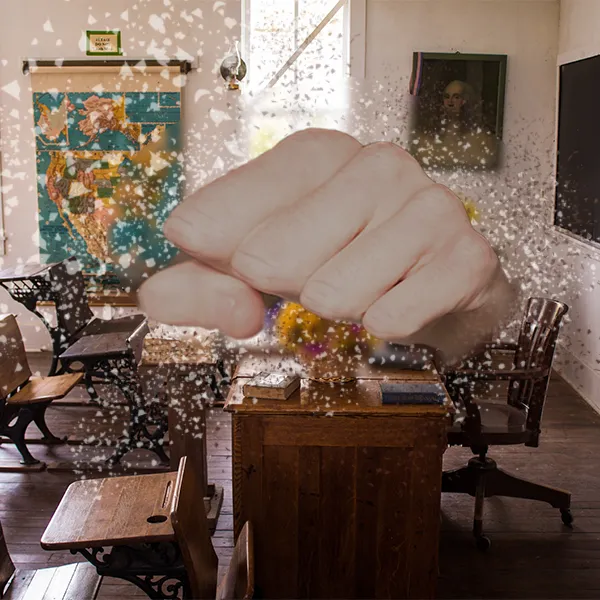A nurse from a disabled children’s orphanage who worked there during Ceaușescu’s reign tells her story.
This is the first chapter in the story of Doina Popescu’s confessions, a well-known Romanian writer and journalist who worked as a nurse in an orphanage during the Ceaușescu regime’s final decade. Her confessions are heartbreaking and harsh in terms of how the Romanian government treated disabled children, as well as the neglect or hostility of orphanage staff, who kept the children in deplorable conditions and denied them food. As these confessions will show, Ceaușescu issued the infamous 770 decree banning abortions in 1966, which, combined with the austerity of the 1980s to pay off the national debt, resulted in a large number of children being abandoned in underfunded and understaffed orphanages run by overworked or uncaring nurses. The decree also resulted in the deaths of tens of thousands of women as a result of primitive abortions. Even after the anti-abortion decree was repealed after the regime fell in 1989, women like Bimbușca who worked in those orphanages lost their social status as privatizations reduced their employment opportunities or, when they did find work, they were exploited and underpaid, so the story of Eastern Europe’s return to capitalism is also a story of rising inequalities and exploitation.
This is a fragment published with the approval of the author. The text initially appeared in the Romanian novel ”Vipia Amiezii” (The Noon Heat) that was published by Adenium publishing house in 2017.
I haven’t seen Bimbușca in over a quarter-century, since the events of December 1989, which some still refer to as a revolution, despite the fact that the portmanteau term ‘loviluție’ has gained traction online in recent years – a fake revolution triggered by a coup d’état.
If she hadn’t approached me with an explosive “Comrade!” followed by a more subdued “Miss teacher,” I surely wouldn’t have recognized her after all these years. The encounter, which took place at the entrance to the new supermarket around the corner, surprised me in an adverse way, because the past period, with its stumbling reforms, has been harsh, particularly with people like Bimbușca (…).
Bimbușca worked as a laundress in a kindergarten for disabled children, but despite how insignificant her job may appear now, the realities of the time gave it a significance that is difficult to comprehend today. The kindergarten would have continued to function normally without a principal, without one of the teachers, even without speech therapists, but without Bimbușca, the entire institution would have undoubtedly collapsed. Not because the wet bed sheets, towels, pajamas, and underwear would have rotted in the urine of children. In fact, anyone who could withstand the pungent odors of sulphur and ammonia would have thrown those dozens of kilos of wet, irreversibly stained, and shredded here and there laundry into the massive washing machine. When sudden mental breakdowns occur and struck all of the children at once, no one except Bimbușca was able to control the enraged horde of handicapped children. From a politically correct standpoint, we would now refer to those kids as ‘children with disabilities,’ but no one had any lexical scruples or was offended if you said you worked with ‘the handicapped’ twenty years ago.
Everyone, on the other hand, was eager to feel sorry for me: “Poor dear, you work with those lunatics?” This was not a fair assessment and it’s not how I felt about it. And Bimbusca felt like a fish in the water, she was the best! The baby boom which was a result of the 1966 abortion ban resulted, among many other things, in tens of thousands of ‘defective’ children being born. Those other are for instance: prohibition of any form of sex educatins and import of contraceptives. Also, this gave a start to the generation of the famous ‘decrețeii’, that is people born as a result of the Caucescus decree. The irony here is they were later credited with actually overthrowing Ceaușescu.
As for the ‘defective’ children, if they didn’t die before being registered, the majority of them were abandoned by their mothers right in the maternities. The problem was that if the mothers had problems or were under the age of 18, the unwanted newborns were still kept in maternity wards, even if they had no visible defects. They were all taken into the care of the state, who placed them in so-called ‘cradles,’ (this is how Romanians ironically refer to orphanages) and from these ‘cradles,’ large numbers of children were sent to a special kindergarten for children with disabilities after a superficial assessment of their condition. Such concepts aren’t really new. Let us not get impressed by Plato’s dangerous ideas of having the state upbring our children. I’m not sure what was Plato thinking (or, perhaps, what Socrates was thinking?) when he wrote that, in order to become good citizens, those children who are ‘well-conformed’ (the others could die) must be taken away from their mothers and raised in the ‘common’ by women and men appointed by the state, because only the state can educate individuals fully devoted to the city-state.
Dozens of children from all over the country had gathered at the institution where Bimbușca and I worked twenty-five years ago, that is ‘cradles,’ despite the fact that no one was actually swinging any cradles there. And who could have swung thirty children by himself every day when every employee had to do a slew of other tasks outside of his job description? This isn’t to say that the children were unaware of the concept of a cradle. Every day, they swung themselves obstinately. The stereotypical swaying was everywhere during the triage for one type of institutionalization or the other, and it, along with other forms of retardation discovered during testing, determined their fate to a disabled institution.
From the age of three until they could go to boarding school, a few of us, adult teachers, had to raise 67 children. In theory, because preschoolers without birth certificates (the majority of them!) were not accepted in the first grade until they were given a new identity, many of them skipped kindergarten and only went to school when puberty hit. The ‘ladies’ of the service staff (teachers were called ‘comrades’) used their imagination until they were given an official name. A little boy with a low IQ and an omnivore was nicknamed ‘Piggy,’ another child who bit his hands until they were bleeding was nicknamed ‘hopping mad,’ another child who kept trying to rape his bed mates was nicknamed ‘the faggot,’ a little girl who screamed every time you put her on the putty and only defecated while standing was nicknamed ‘the cow,’ and another little girl who masturbated was called Onania.
Because they were locked between blocks of flats and surrounded by construction sites with bulldozers, trucks, and cranes, the children assumed these identities right away. They had no idea what a pig or a cow looked like, let alone what names like ‘the faggot’ or ‘Onania’ could possibly mean! The truth is that, even though they didn’t have much to play with, their libidinal desires were quite strong! They indulged in erogenous explorations in the dormitories, piled up three or four of them in a few beds that were somehow unstained by urine, and were discovering homosexual activity, fellatio, or masturbation, especially during the long afternoons when they were forced to go to bed, even though they weren’t tired enough to feel the need to sleep.
Because they didn’t have anything other than their naked bodies for personal use, they just played with what they had, and no one could take it away from them. Only the thumb was their ‘toy,’ which they used to put in their mouth with the fingernail pasted to the tongue and suck while swinging to get some sleep. Not only did they learn to respond to the names they were given, but they also began to call each other by those names, much to the amusement of the ‘ladies,’ as well as some of their comrades who cursed and slapped the children whenever they caught them in ‘unnatural acts.’
“They still think about naughty things, as stupid as they are!” I tried unsuccessfully to explain child sexuality and the phallic stage to her. In theory everyone knew who Sigmund Freud was, but no one believed me when I told them he was an Austrian psychiatrist who talked about such things. “Well, that means even Freud was off his rocker!” they exclaimed, dismissing the possibility with a sly grin. The discussions in the great hall, where the entire staff occasionally gathered, usually ended with the observation that many geniuses were obsessed with sex, so it wouldn’t surprise us if our mentally handicapped kindergarten produced one.
I can’t say that some of the employees were unconcerned about the children. They were even competing for the right to buy candy for the kids. Some went even further, taking some of the children home with them during the holidays or on weekends when they weren’t on duty. The lucky ones who got a taste of family life returned to kindergarten washed, lice-free, and perfumed, and their classmates were stunned when they told them how ‘wealthy’ the teacher is or how delicious the auntie who cooked for them was.
“How wealthy is she? Like the elderly gentleman in Bag with two pennies?”
“No, mate, you’re a lot richer! She has two large boxes of salt, unlimited sugar, and plenty of bread. There is never a shortage of bread!”
Access to bread was then limited at the kindergarten. The tables had baskets full of bread at first, but the mischievous kids grabbed several slices at once and squeezed them in their hands until a paste in the form of lumps as hard as cannon balls appeared, which they used to bombard the ‘comrade’ teachers. Sugar and salt vanished in the same way, as if they were ammunition for the kids. They either threw it in their eyes or poured it to the last drop in their mug or their friend’s plate, causing him to scream and throw his plates on the cement floor. The one who had gone hungry charged at the other’s cups and plates, and things quickly escalated into a brawl akin to what you might see in American western movies. There were unavoidably victims who required medical attention. The nurse would then be summoned and drove the injured children to her doctor’s office, cursing them and washing their eyes before applying bandages, medicines, and ointments. As a result of the screams, thuds, and bawls that filled the kindergarten, the meal quickly devolved into chaos. As a result, the sources of chaos had been eliminated, and only sliced loaves of bread were to be distributed.
The Barricade is an independent platform, which is supported financially by its readers. If you have enjoyed reading this article, support The Barricade’s existence! See how you can help – here!
Also, you can subscribe to our Patreon page. The Barricade also has a booming Telegram channel, a Twitter account and a YouTube channel, where all the podcasts are hosted. It can also be followed in Rumble, Spotify, SoundCloud and Instagram.










